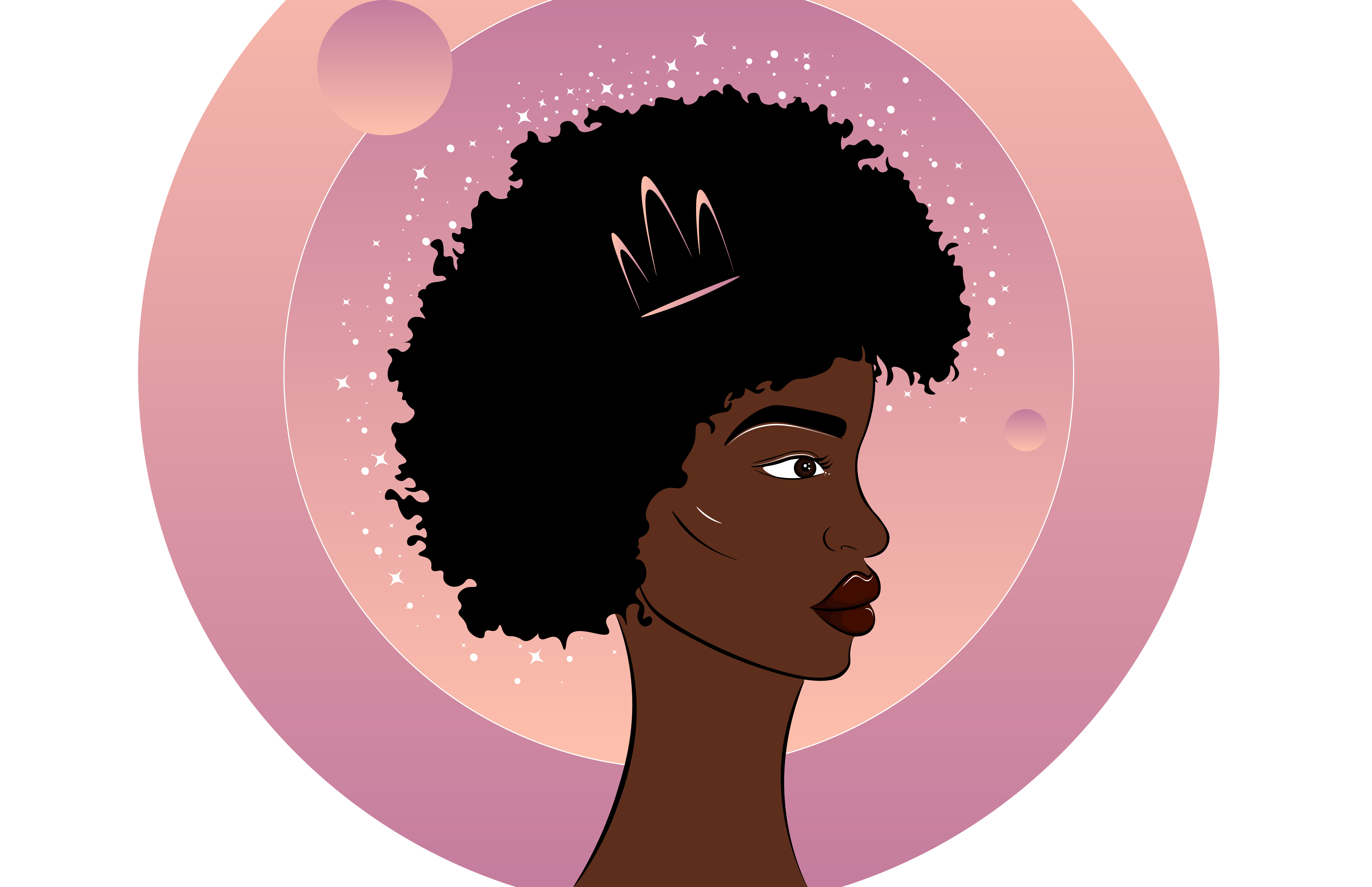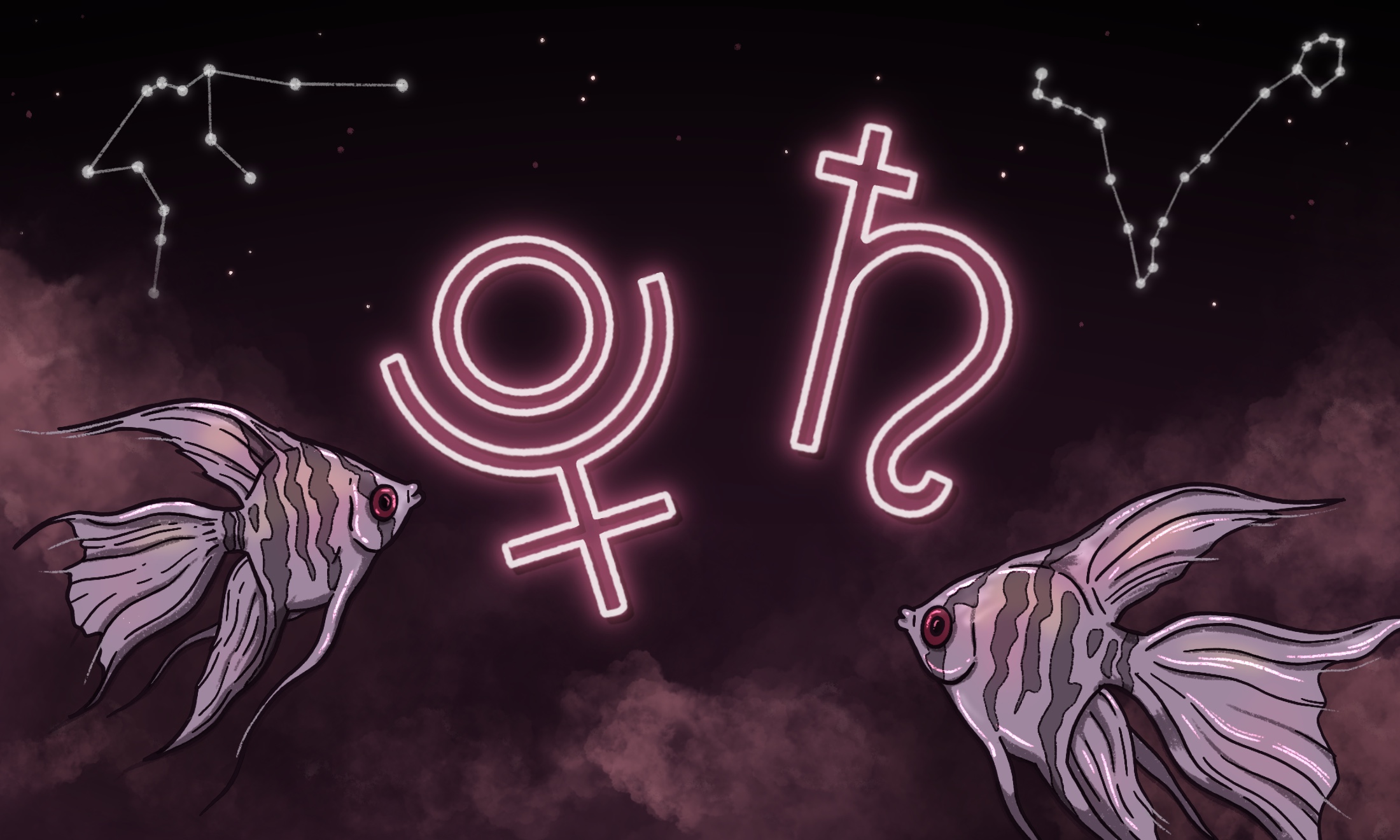
Illustration by Kimmie Hoo Creative
I sit between my mother’s knees every Saturday from the time my hair was long enough to braid until I turned twelve. We begin the morning in her restroom, with me seated in a plastic, yellow chair, head tilted back, as she lovingly lathers, rinses, and repeats until her arms are tired. I am a balancing act as I trail her downstairs to the living room, my hands filled with towels, brushes, hair bows, clips, and oil. The television plays in the background and she spends hours combing, parting, and plaiting my hair, then my sister’s.
For years following my mother’s consistent hair care regimen, I straighten my hair religiously in efforts to achieve what I think of as beauty. As my bathroom fills with the stench of burned hair, I realise that I don’t quite know why I attribute beauty to bone-straight hair, but I do know it is all I see when I turn on the television or open a magazine. No longer do I have to sit still as my mother braids my hair, instead I go with her to bi-weekly hair appointments at a now-defunct salon near my childhood home. Together, we sit at wash sinks and dryers and stylists’ chairs, and I see how graceful and funny and kind my mother is with women her own age. When my hair is straightened before hers is curled, she sends me next door to the grocery store with a crisp twenty dollar bill for sub sandwiches, chips, and sodas. At the checkout line, I peruse through fashion magazines and Archie comics and enjoy what little independence comes with being thirteen.
“Length, over health, is considered beautiful, and to my mother, cutting my damaged hair is unfathomable”
When I wash my hair, it briefly becomes wavy before drying and turning to straight, limp strands, no longer curling the way it did when I was a little girl. Length, over health, is considered beautiful, and to my mother, cutting my damaged hair is unfathomable. She would often jokingly say that my hair is hers until I am eighteen and an adult. The hours she spent conditioning and detangling and braiding my hair weren’t for nothing, she tells me, often repeating this refrain when I express interest in cutting my hair. I finally convince my mother to let me cut it for the first time in high school, and my eyes water as mere inches hit the floor and are soon swept away. “You wanted this”, my mother’s voice in my head reminds me. “You wanted this”. And she is right.
My older sister tells me that half the kids at school compliment her straight hair, while the other half fawn over her curly hair. She doesn’t know who to please, and neither do I. We are both stuck in the middle. My sister is my North Star, always guiding me to what is true and right and moral, and to know we are both standing on the middle ground is enough to push me beyond the beauty standards of others and pursue myself. I do not want to be a balancing act if it means losing myself in the process.
I began spending hours in the mirror, learning and unlearning my hair, starting from scratch. I perfect braid outs and two- and three-strand twist outs, but continually fail at flexi-rod sets and cornrows. I undo my braids and twists while they are still dry, and learn to blow-dry them before bed and coat my fingers with oil when it is time to take them out. I learn to pick my hair for volume and deep condition for moisture. I watched YouTubers will loose hair textures and wondered why my curls weren’t as silky as theirs. I begin to hate my hair.
“I began spending hours in the mirror, learning and unlearning my hair, starting from scratch”
Just when I think I’ve aged out of her at-home salon, my mother spends years begging me to let her do my hair again. She knows best, she reminds me, her words falling on unreceptive ears. She will save me the time and trouble of doing my own hair and often failing at it. I am determined to prove I know better. I, at the very least, want to try and fail for myself, I tell her. But what I don’t say is that my hair is the only way I know how to be independent.
When I move three thousand miles away, my hair becomes fully my own responsibility. Without a word to anyone back home, I go to the salon and within minutes, five years’ worth of heat damage drifts to the floor. I almost don’t recognise myself when I look in the mirror; my hair is the shortest it’s been in my entire life. Even though my definition of beauty has evolved, society’s has not, and I realise this is what I was aiming for all along.
“My hair is the only way I know how to be independent”
I wanted to be independent of the beauty standards that have deemed black women as unworthy. The standard of beauty that tells little black girls that it is better to be lighter skinned with silky hair than anything else. The standard of beauty that, when it does include natural hair, only stretches itself wide enough to accommodate girls with loose curl patterns and smooth textures. The same standard of beauty under which people felt validated enough to second-guess and discourage my going natural, only to ask me for hair routines when my curls finally coiled instead of coming in waves.
To balance beauty standards is to live in a constant state of exhaustion, to constantly feel as though you never measure up to something you never asked to be a part of. As the standard of beauty slowly widens to include certain types of women of colour (light skin, loose curls) it is imperative that those who are now represented within these newly created margins do the work to expand those margins even further or, better yet, dismantle them completely.








